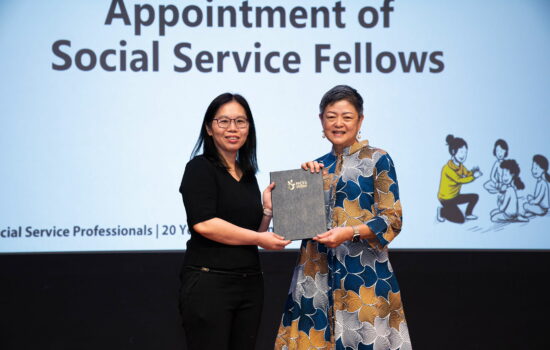Key takeaways:
- People with disabilities should not be disregarded as they are a source of manpower that has been wrongly disregarded.
- A recent survey has shown unfavourable attitudes towards people with disabilities, as their disability is often perceived as an inability to do the job
- SPD helps by providing support for employers to have a successful job placement when hiring people with disabilities
A recent survey found that inclusion of people with disabilities was the biggest issue in the workplace, despite many having the relevant qualifications to work effectively. This stems from unfavorable attitudes from others, as disability is often wrongly perceived as inability to work. Voluntary welfare organisations like SPD provide job placement support for employers to understand and provide the needs for people with disabilities.
A recent survey found that inclusion of people with disabilities was the biggest issue in the workplace. SPD’s Director of Adult and Elderly Services division, Ms Han May Ching responds in this letter that was published in The Straits Times Forum on 11 May.
The recent survey by cloud computing company Workday revealed that more than one-third of the human resources leaders who took part in the poll felt that inclusion of people with disabilities was the biggest issue in the workplace (Poll: Bias against disabled people, seniors are top issues at work, The Straits Times, April 19).
For people with disabilities, employment provides economic self-sufficiency and opportunities for active participation in the community.
Many have relevant qualifications for employment and, when given the opportunities, training and job accommodation such as assistive technology and job re-designing, people with disabilities can work effectively and be valuable employees.
However, people with disabilities make up only 0.55 per cent of the resident labour force.
This is not surprising, as the research findings point to unfavourable attitudes towards people with disabilities, as their disability is often wrongly perceived as an inability to perform the job.
Prime Minister Lee Hsien Loong mentioned in his Labour Day message that the labour movement has extended its outreach to freelancers, the self-employed, migrant workers and professionals.
Hence, it is time for people with disabilities to be considered another prospective source of manpower that can contribute towards building a dynamic and prosperous Singapore.
Mr Paul Simon is a case in point.
He has mild intellectual disability and works as a cook at an international hotel.
His mentors have found that he is a fast learner, adaptable and an independent worker.
In January, he even got to fulfil his wish of cooking for President Halimah Yacob. He dreams of opening his own restaurant and plans to further his studies.
Indeed, he is one among many we have witnessed who are as motivated.
Job placement support provided by voluntary welfare organisations such as SPD can help potential employers to understand the needs of people with disabilities and guide them on the accommodations needed for a successful placement.
SG Enable also administers the Open Door Programme which employers can tap for funding support when hiring, training or integrating people with disabilities into the workplace.
Employers can call SPD on 6579-0700 to find out more about the support that we offer, or SG Enable on 1800-858-5885 for more information about the Open Door Programme and other funding support.





